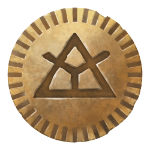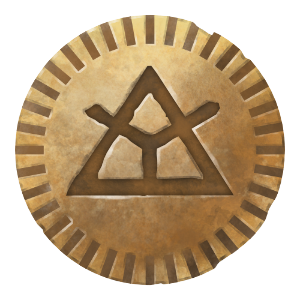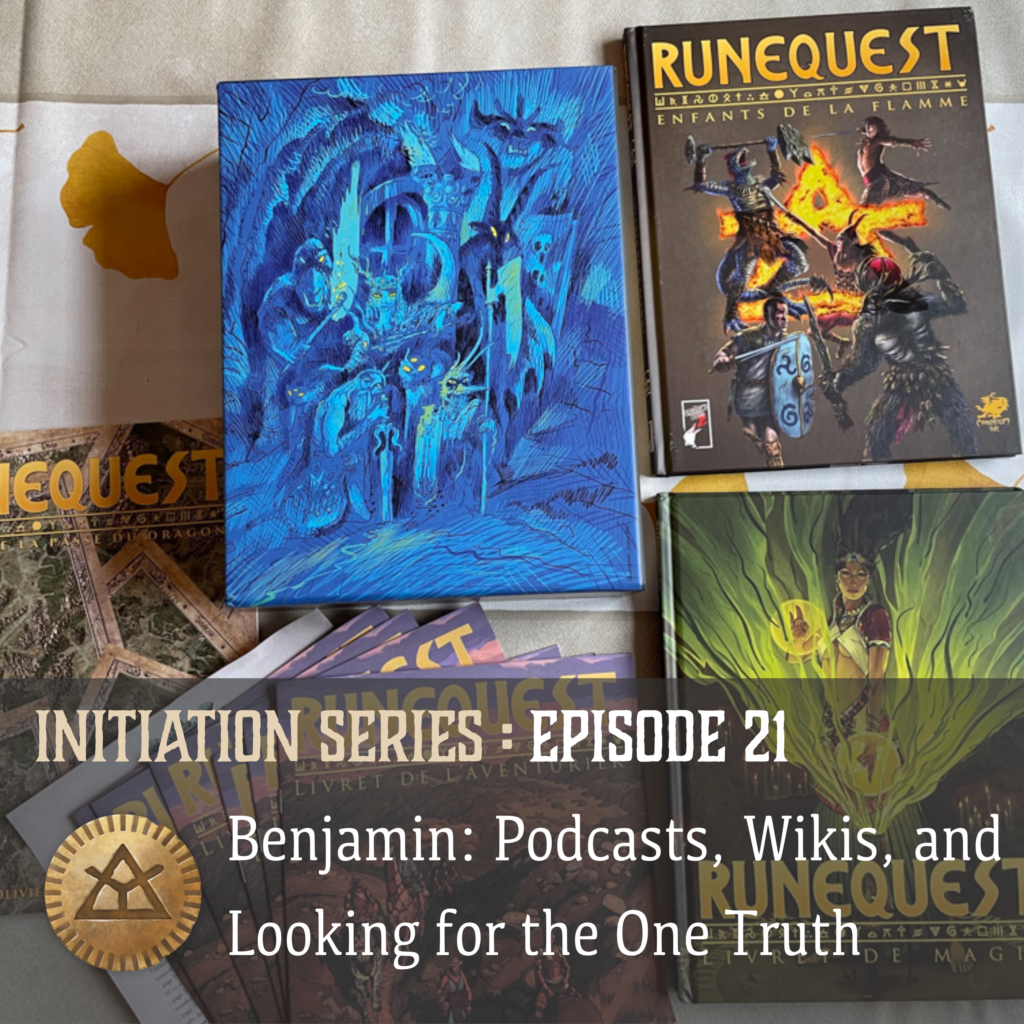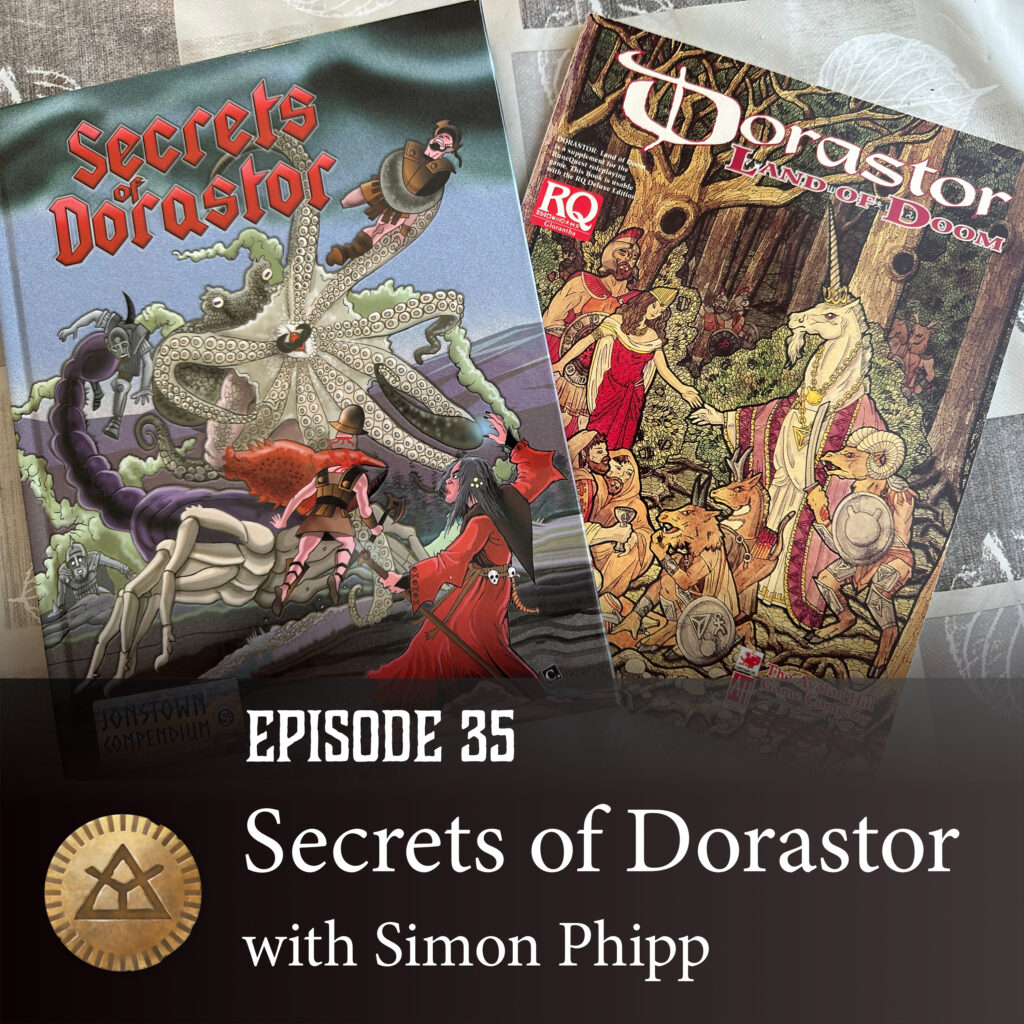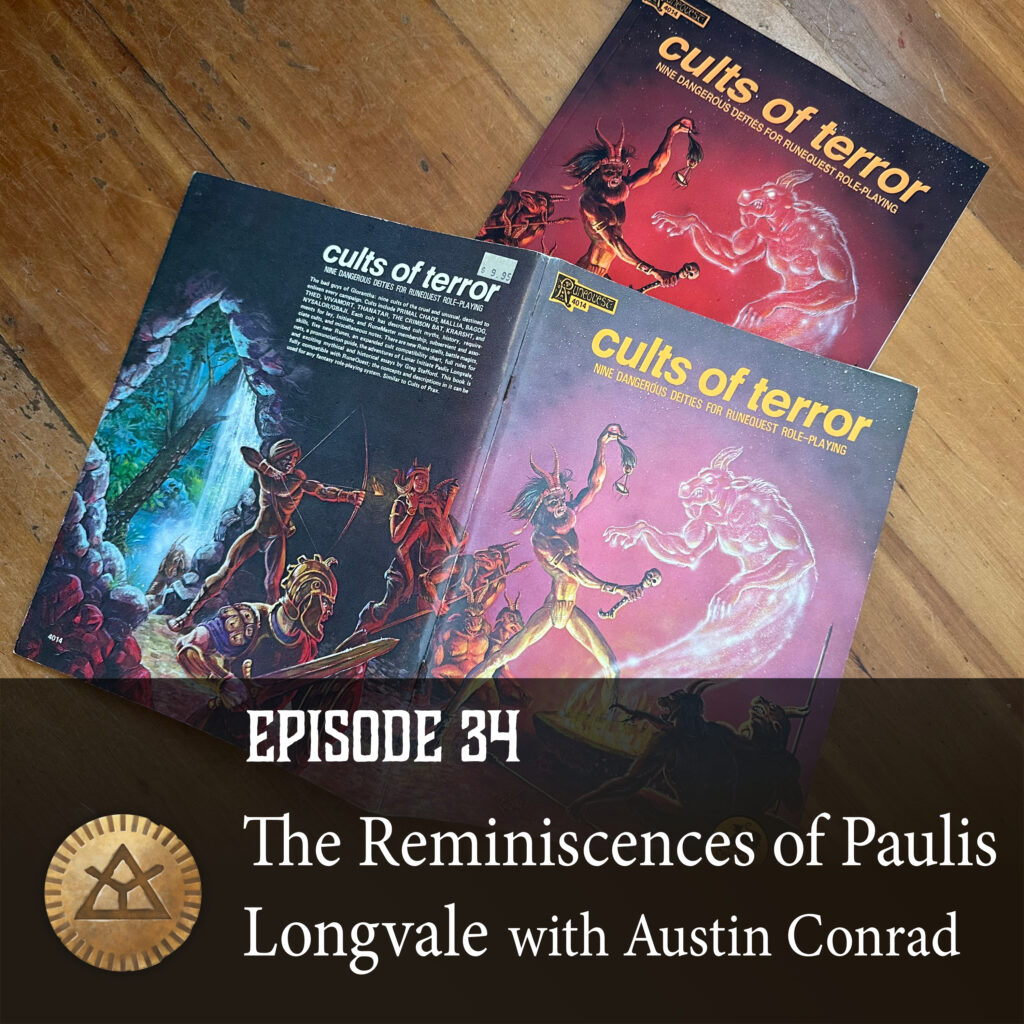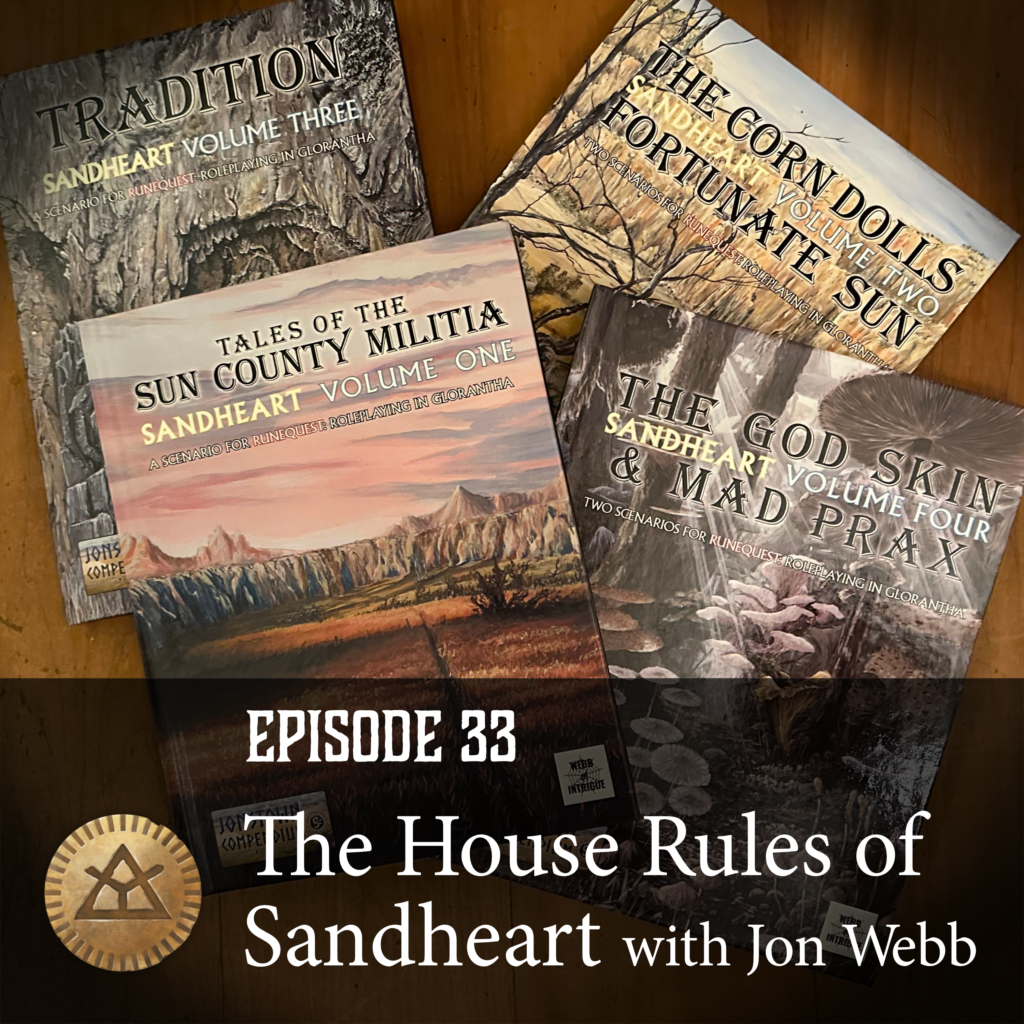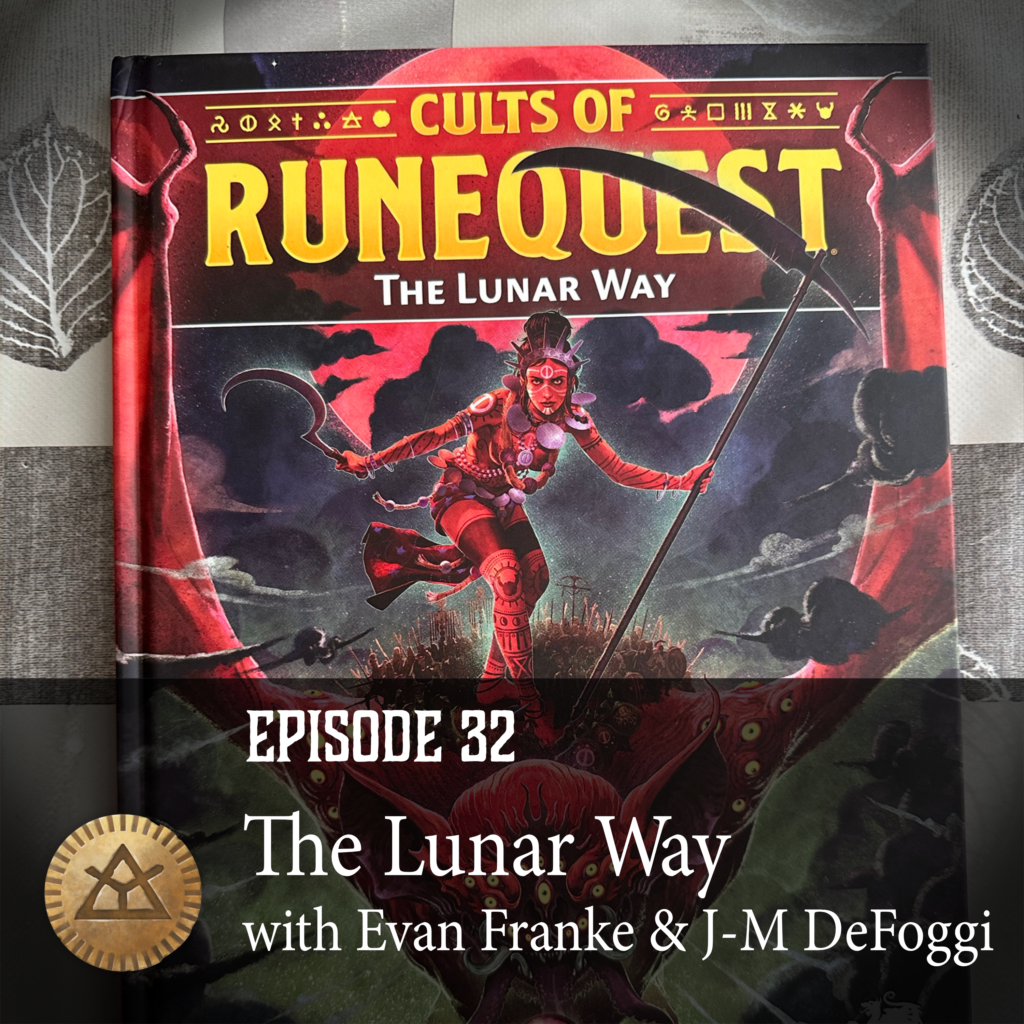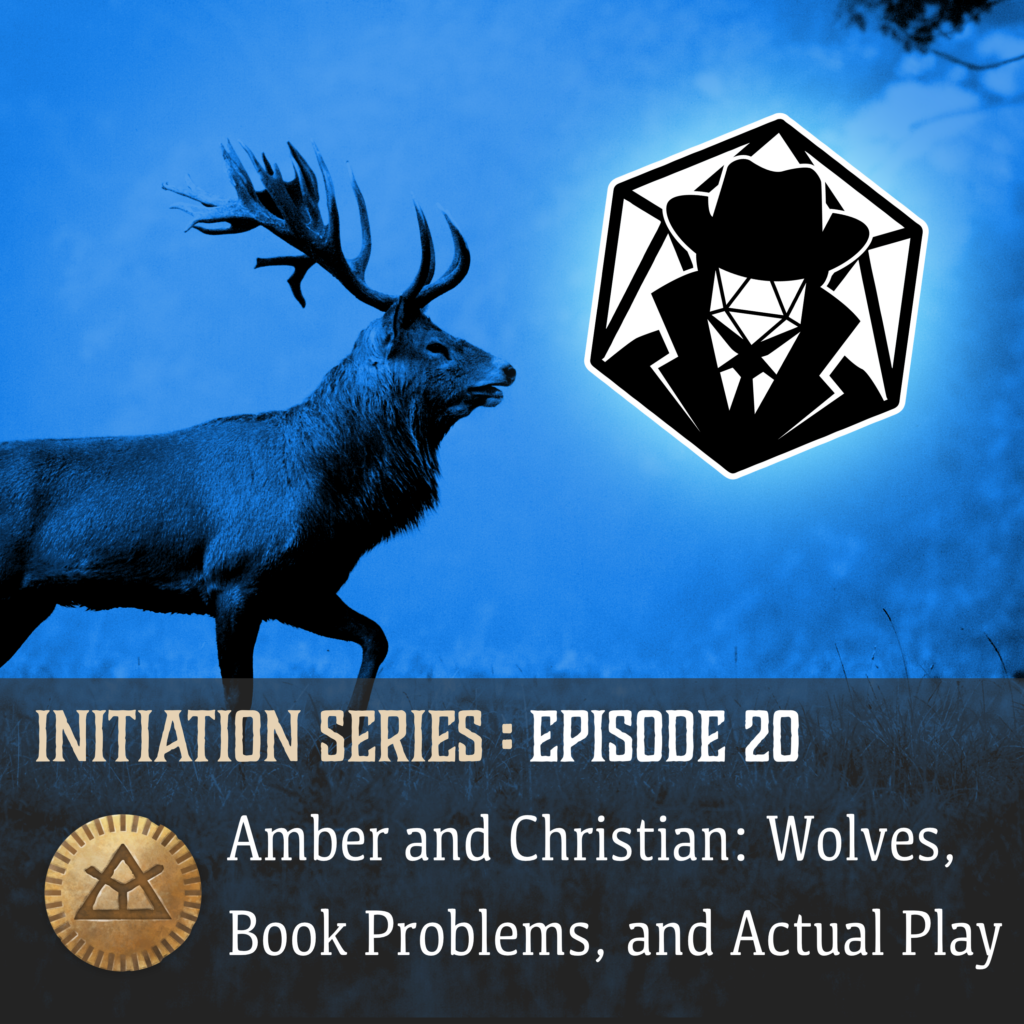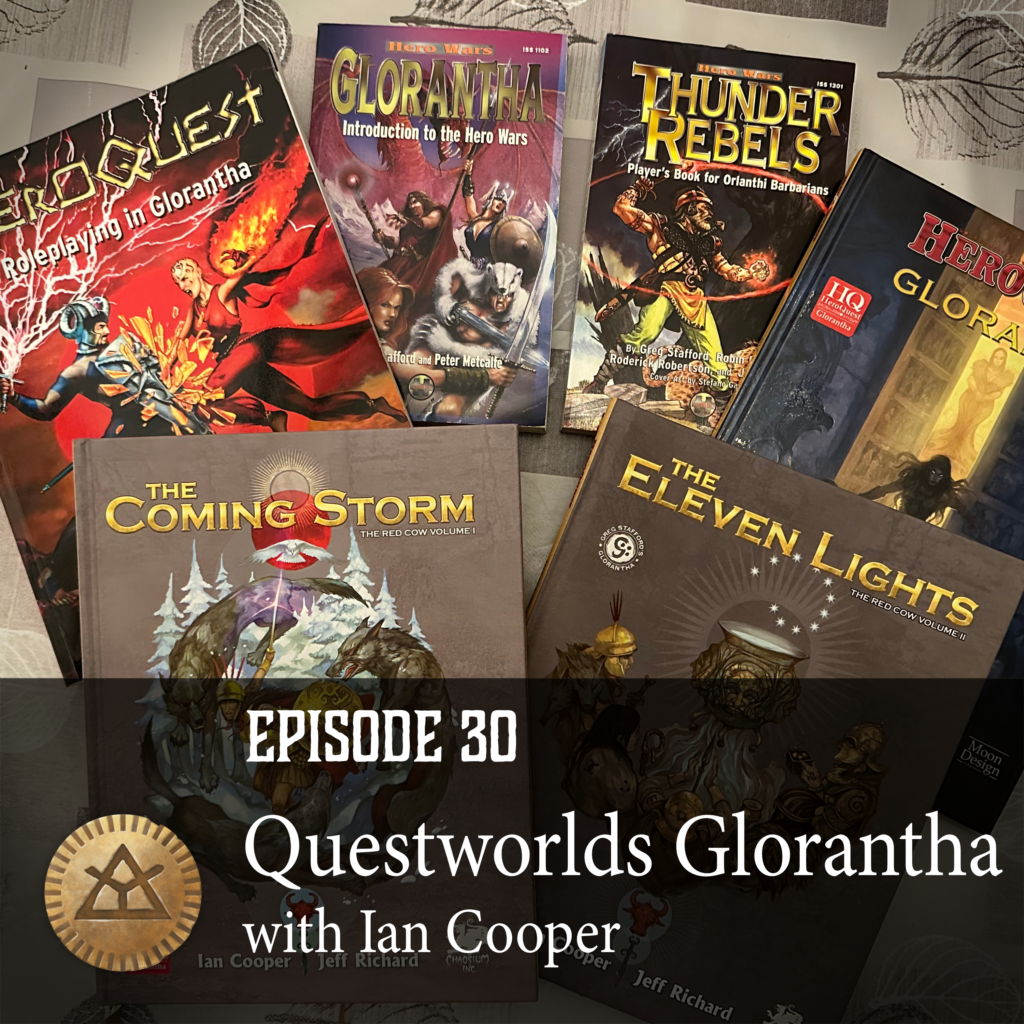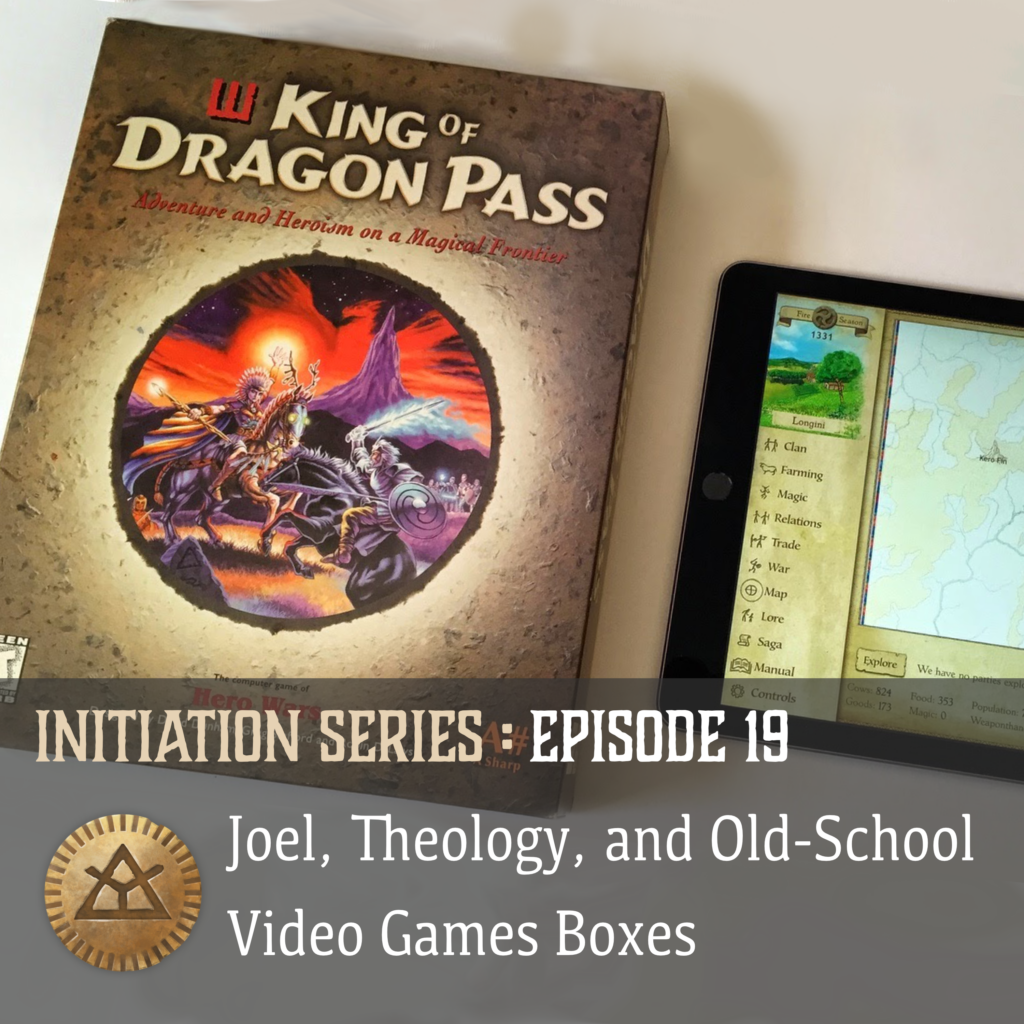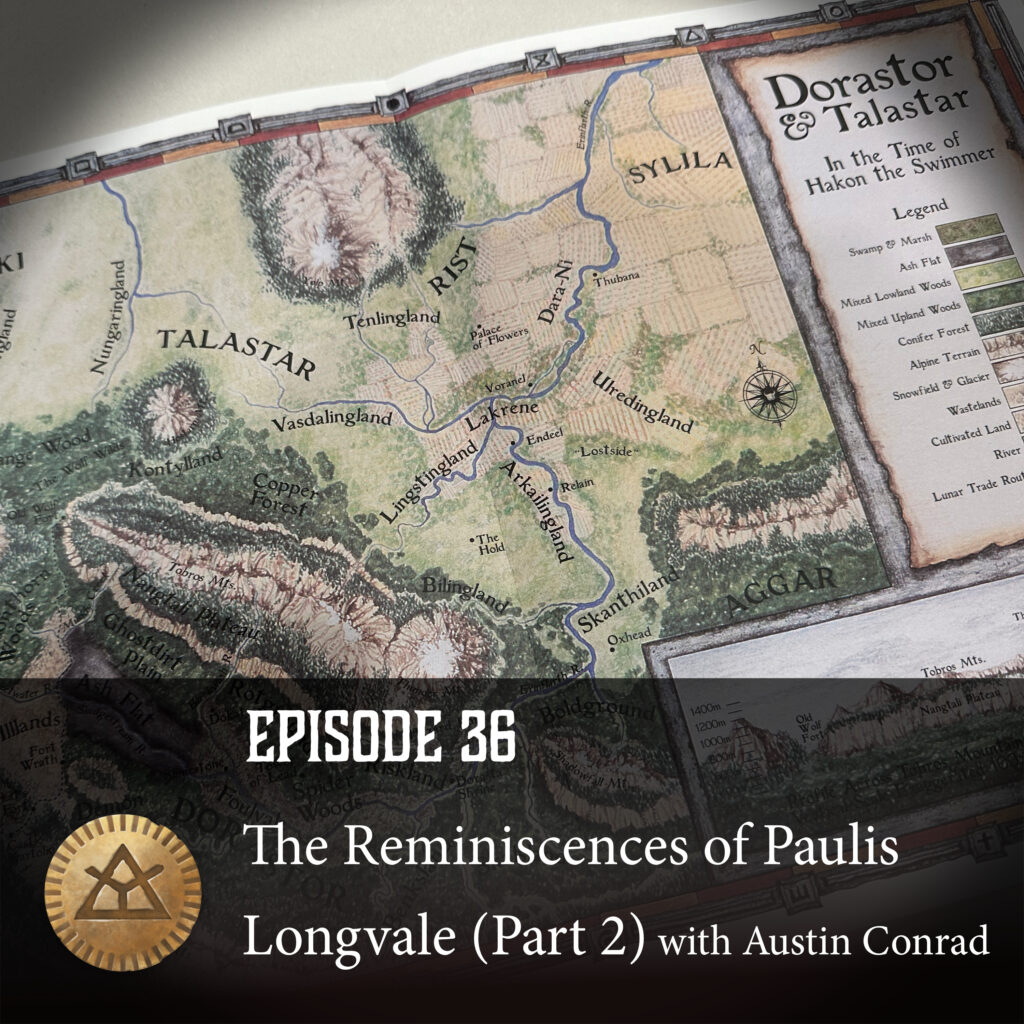
Our Guest
We welcome once again Austin Conrad to the show!
- His website is Akhelas
- Get Treasures of Glorantha: Volume 2, one of the finest books on the Jonstown Compendium! (which we talked about in episode 31)
- Austin hopes to be “done soon” with his upcoming “Wolves of the Wild Hunt” book… that was a couple months ago and it’s not done yet 😅 The book will include slightly remastered previous materials such as The Quacken, and The Queen’s Star, plus new stuff about Gagarthi monsters!
Show Notes
Things that happened in this episode:
- Joerg reminds us what the Reminiscences of Paulis Longvale are… Listen to episode 34 if you haven’t already!
- Cults of Terror is “the gamemaster’s best friend”
- Also listen to episode 35 with Simon Phipp, specialist of Dorastor!
- Yes, YOU too can play a Thanatar cultist!
- Ludo summarizes the previous episode’s story
- Austin mentions the old Dorastor book, plus gives another shout out to Simon Phipp’s books
- Ludo goes on a short tangent about the name “Bilini”
- Austin lays down another argument about the Orlanthi really being Vikings
- We discuss the various motivations of the characters regarding Chaos, Dorastor, and the Lunar Empire
- Ludo has made a spreadsheet! He tries to figure out what are the chances of the Bilini king’s army against Razalkark’s army
- How cute are baby broos? Or baby Scorpion Men? Apparently Diana Probst has one of those in Stone and Bone, go check it out!
- We talk about battle tactics and “broo walls”
- How the hell do you recreate this story using RQ rules? Should we play using HeroQuest/QuestWorlds? (again)
- The phalanx rules suck?
- Is dual wielding better than using a shield? (We fumble around the convoluted RQG dual wielding rules)
- Rules terms inside the narrative text… what to make of it?
- Would you abstract the things we see in this story to “just a few rolls” in RuneQuest?
- Austin is being an asshole (his words! not mine!)
- How much plunder do you get from Chaos creatures?
- Giving a “personal touch” to plunder and gifts… or just add some jewels!
- Reselling gifts to buy actually useful stuff, like skills and spells!
- “WHERE IS MY MONEY?” and other things players say
- Ancient cultures versus transactional cultures
- Ea-Nasir name drop!
- Storm Bull cultists as a biker gang
- Austin mentions “A Short Detour” and the way we tried writing Chaos cultists as nuanced people
- Are Illuminates crazy assholes? Or are they people with feelings?
- Uleria is more powerful and bad-ass than we give her credit for
- Body horror with Uleria! Play Limbo!
- Austin has more conspiracy theories about the Celestial Court on his website!
- Vampires in Dorastor… do they have enough to eat?
- World of Darkness vampires vs Dresden Files vampires (also, Ludo mixes up Dresden Files and Laundry Files)
- Austin’s Harrek campaign, and the shenanigans the PCs are up to
- Give player characters cool or embarrassing epithets!
- The interesting framing of a Chaos-based narrative with a Lunar perspective
- Telmori vampires! Or vampires feeding on Telmori! Maybe both!
- The lost power of RQ2 vampires that can steal Rune magic when feeding off someone
- Rituals to get your magic items to trust you
- Fear mechanics in RuneQuest?
- There’s a difference between improvising and off-the-rails-improvising!
- RQ2 silver magic collars… they’re in every RQ2 story
- How do you keep prisoners?
- Suspicious tricksters! (aren’t they always?)
- Joerg tells us about Jojo The Bobo. Also, Bugs Bunny and the Puppeteer Troupe
- “We’re in Dorastor, but we’re getting…. human drama???!”
Credits
The intro music is “The Warbird” by Try-Tachion. Other music includes “Cinder and Smoke” and “Skyspeak“, along with audio from the FreeSound library.
Podcast: Play in new window | Download (44.7MB)
Subscribe: Apple Podcasts | Spotify | RSS | More
